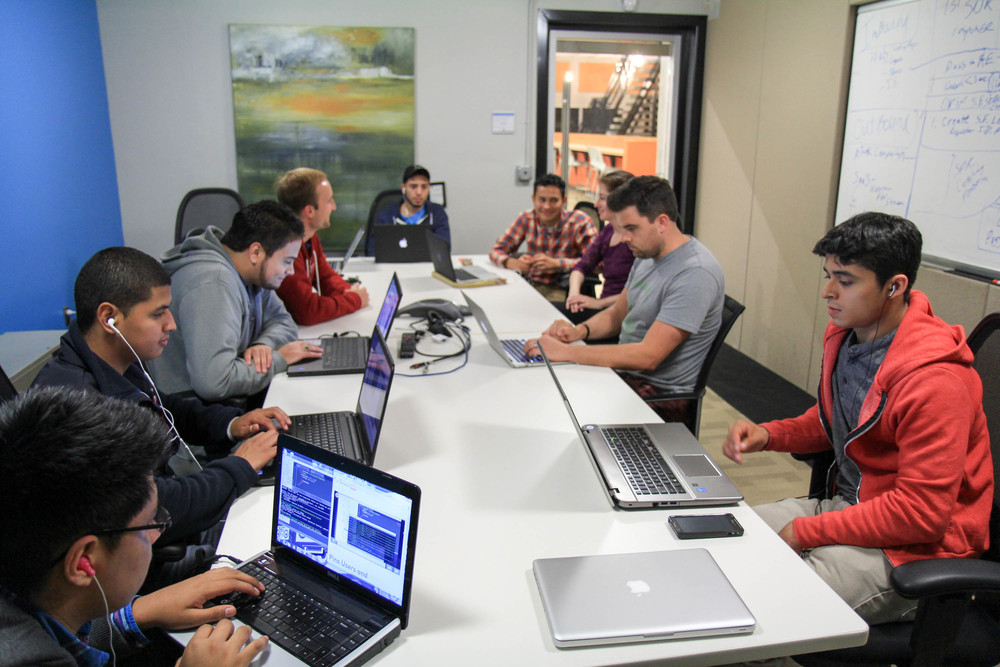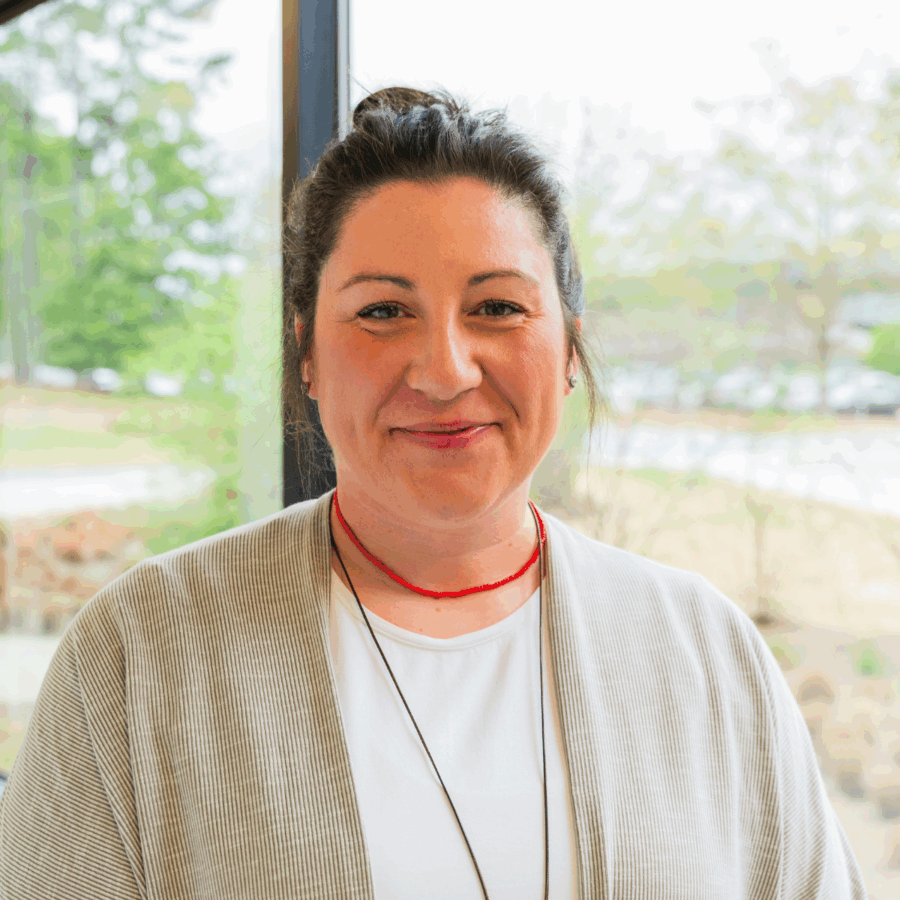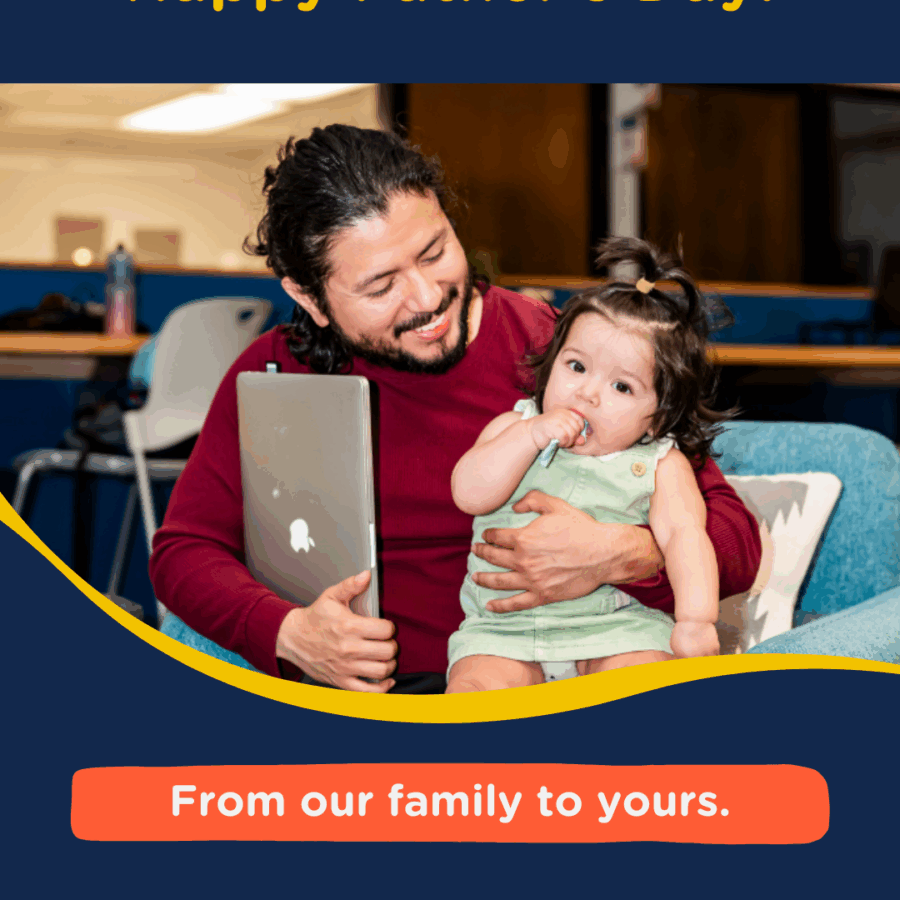
Dreaming in Code
By Emily Feng
Each weekday, from 9 to 5, Ruben Cruz learns to code. Less than a year ago, Cruz, whose parents immigrated from Mexico, had no programming experience. Now a full-time student at The Iron Yard, an intensive coding academy in downtown Durham, he will graduate with the skill level of junior software developer.
Cruz credits Code the Dream, a program based in the American Underground, with his quick ascent. Spearheaded by Raleigh-based nonprofit United NC and American Underground, Code the Dream provides computer-programming classes to students of immigrant backgrounds who otherwise would not have the chance to learn coding.
Code the Dream originally began as the brainchild of Dan Rearick, the executive director of United NC, which works with immigrant communities in North Carolina to improve their opportunities.
Rearick is motivated by a strong belief that immigrants are integral to economic success. “First- and second-generation immigrants start their own businesses at twice the rate of native-born American citizens,” he says. “And those numbers are probably artificially low because of other obstacles immigrants face. Imagine harnessing that drive and work ethic.”
His path intersected with that of Adam Klein, chief strategist of American Underground. Klein had already been bouncing around ideas for channeling American Underground’s formidable network of start-ups and entrepreneurs into a community project.
“We especially have a strong interest in providing a counter narrative to the homogenous culture in the tech industry in places like San Francisco,” which, Klein says, employs disproportionately few minorities and women.
For example, nationally, just 1 percent of those who work in the tech industry are African American and just 2 percent are Hispanic.
Klein and Rearick identified lack of educational opportunity, particularly in immigrant communities, for this disparity. Together, they imagined Code the Dream as an educational program targeting potential programmers of immigrant backgrounds.
United NC called for applicants in early 2014. One of the students that responded was Cruz.
Code the Dream began with 12 students who participated in weekly classes in programming applications such as Ruby on Rails. While a few students left the class, many responded enthusiastically. “They did really feel like they had an opportunity they wouldn’t have had otherwise, so they were equally motivated to learn as much as they could out of the experience,” says Mason Matthews, a volunteer mentor.
“I feel like I’m networking more, which is very important,” says Cruz, who was born in North Carolina. “I’m meeting people who have the same interests to me and who have connections to real businesses who will hire people like me.”
Ramiro Rodriguez, a freelance software engineer and a volunteer instructor for Code the Dream, emigrated from Mexico as a child. He sees the role of mentors and providing professional networks as especially crucial when lowering the barriers of access in the tech industry. “Latino immigrants tend to come from lower socioeconomic status, and because of that they’re just not exposed to what’s possible,” Rodriguez says. “They don’t have good role models in terms of science and technology.”
Keny Murillo, another former student of the program, hopes to pursue a career in medicine. Still, he sees his coding experience with Code the Dream as invaluable. “It at least gives students like me an opportunity when there are not that many opportunities available to us, without asking for this paperwork or that. That’s something that is good to be a part of.”





